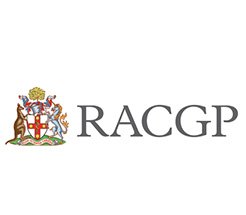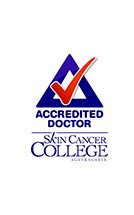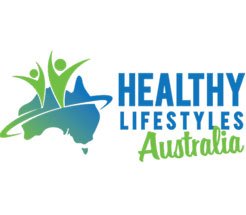Coronavirus Vs The Flu
The coronavirus (COVID-19) and the flu are two completely different viruses, but they have similar symptoms and both can be deadly. While you can fight against the flu with an Influenza vaccination, there is no current vaccine for the Coronavirus.
Our 2020 vaccines may be arriving in our by the end of march 2020!
If you want to be notified as soon as this year’s vaccines have arrived, complete our flu shot registration form on this page and we will send you an email notification.
But how can you fight against the Coronavirus? The best way to fight this virus is to avoid getting it in the first place, and to minimise the risk of spreading, it by practicing good hygiene. For example, wash your hands regularly, cough into your elbow, and isolate yourself from others if you feel unwell.
If you think you might have the symptoms of Coronavirus, please do NOT attend a medical centre without ringing the practice ahead and speaking to one of our receptionist /nurses first, as you may risk spreading it further. Remember your health and that of our community is the first priority.
Where to get more information?
Public Health Information Line on 1800 004 599. NSW call 1300 066 055. QLD call 13HEALTH (13 43 25 84). VIC call 1300 651 160. Australian Government Department of Health homepage at www.health.gov.au
I received a flu shot in 2019, do I still need to get a 2020 flu shot?
Yes. The strains of flu virus can change from year to year. The vaccine may also change to protect against the most recent flu virus strains. Even if the flu strains do not change, a yearly vaccine for influenza is still recommended, as immunity from flu vaccination is not long lasting.
It is also highly contagious, so you could pass it on to someone at risk. The Flu is potentially a life-threatening illness for the young, frail and the aged.
What’s the benefit of having a flu vaccination performed in a medical centre rather than a Chemist?
It is good medicine that you have your yearly flu shot administered at your GP practice as they have your medical history, can keep a record of your vaccinations and discuss any medical concerns with you in a private setting.
What are the most common symptoms of the flu?
Symptoms may occur 1 to 3 days after infection, and generally seem like the ‘common cold’. Typical flu symptoms could include:
- tiredness
- fever
- chills
- headache
- cough
- sneezing and runny nose
- poor appetite and
- muscle aches
If you or your loved ones experience any of these symptoms this flu season, please see your doctor. Further health problems can develop in some people after flu infection including pneumonia, heart, blood system and liver complications, which can lead to death, especially in children and older people.
Coronavirus Resources:
- Australian Government Department of Health
- Queensland Government COVID-19 Information
- Australian Medical Association Guidelines
- World Health Organisation Coronavirus Advice
Please let me know when the 2020 FLU SHOTS have arrived
Maintain peace of mind ,knowing very well you will be one of the first people to get a 2020 Flu Vaccine. By completing the registration form on this page and we will email you when the vaccine has arrived.
WHAT YOU NEED TO KNOW
People who have returned from a country or region that is at high or moderate risk for COVID-19 should monitor their health closely. If you develop symptoms including a fever and cough you should isolate yourself immediately and urgently seek medical attention. Go to www.health.gov.au/covid19-travellers for the list of at-risk countries.
People who think they may have been in close contact with a confirmed case of coronavirus should also monitor their health and seek urgent medical attention.
While coronavirus is of concern, it is important to remember that most people displaying symptoms such as fever, cough, sore throat or tiredness are likely suffering with a cold or other respiratory illness – not coronavirus.
What is a coronavirus and COVID-19?
Coronaviruses can make humans and animals sick. Some coronaviruses can cause illness similar to the common cold and others can cause more serious diseases, including Severe Acute Respiratory Syndrome (SARS) and Middle East respiratory syndrome (MERS). This new coronavirus originated in Hubei Province, China and the disease outbreak is named COVID-19.
How is this coronavirus spread?
The coronavirus is most likely to spread from person-to-person through:
- direct close contact with a person while they are infectious
- close contact with a person with a confirmed infection who coughs or sneezes, or
- touching objects or surfaces (such as door handles or tables) contaminated from a cough or sneeze from a person with a confirmed infection, and then touching your mouth or face.
Most infections are only transmitted by people when they have symptoms. These can include fever, a cough, sore throat, tiredness and shortness of breath.
How can we help prevent the spread of coronavirus?
Practising good hand and sneeze/cough hygiene is the best defence against most viruses. You should:
- wash your hands frequently with soap and water, before and after eating, and after going to the toilet
- cover your cough and sneeze, dispose of tissues, and use alcohol-based hand sanitiser
- and if unwell, avoid contact with others (stay more than 1.5 metres from people).
Who needs to isolate?
Specific requirements are in place for people who have returned from a country or region that is at high or moderate risk for COVID-19, or think may they have been in close contact with a confirmed case of coronavirus. Go to www.health.gov.au/covid19-travellers for the list of at-risk countries and isolation requirements.
What does isolate in your home mean?
People who must isolate need to stay at home and must not attend public places, in particular work, school, childcare or university. Only people who usually live in the household should be in the home.
Do not allow visitors into the home. Where possible, get others such as friends or family who are not required to be isolated to get food or other necessities for you. If you must leave the home, such as to seek medical care, wear a mask if you have one. For more information visit www.health.gov.au/covid19-resources.
What do I do if I develop symptoms?
If you develop symptoms (fever, a cough, sore throat, tiredness or shortness of breath) within 14 days of leaving country or region that is at higher risk for COVID-19, or within 14 days of last contact of a confirmed case, you should arrange to see your doctor for urgent assessment. Go to www.health.gov.au/covid19-travellers for the current list of high or moderate risk countries.
You should telephone the health clinic or hospital before you arrive and tell them your travel history or that you may have been in contact with a potential case of coronavirus. You must remain isolated either in your home or a healthcare setting until public health authorities inform you it is safe for you to return to your usual activities.
Who is most at risk of a serious illness?
Some people who are infected may not get sick at all, some will get mild symptoms from which they will recover easily, and others may become very ill, very quickly. From previous experience with other coronaviruses, the people at most risk of serious infection are:
- people with compromised immune systems (e.g. cancer)
- elderly people
- Aboriginal and Torres Strait Islander people, as they have higher rates of chronic illness
- people with diagnosed chronic medical conditions
- very young children and babies*
- people in group residential settings
- people in detention facilities.
*At this stage the risk to children and babies, and the role children play in the transmission of COVID-19, is not clear. However, there has so far been a low rate of confirmed COVID-19 cases among children, relative to the broader population.
How is the virus treated?
There is no specific treatment for coronaviruses. Antibiotics are not effective against viruses. Most of the symptoms can be treated with supportive medical care.
Should I wear a face mask?
You do not need to wear a mask if you are healthy. While the use of masks can help to prevent transmission of disease from infected patients to others, masks are not currently recommended for use by healthy members of the public for the prevention of infections like coronavirus.
Where to get more information?
Public Health Information Line on 1800 004 599. NSW call 1300 066 055. QLD call 13HEALTH (13 43 25 84). VIC call 1300 651 160. Australian Government Department of Health homepage at www.health.gov.au














